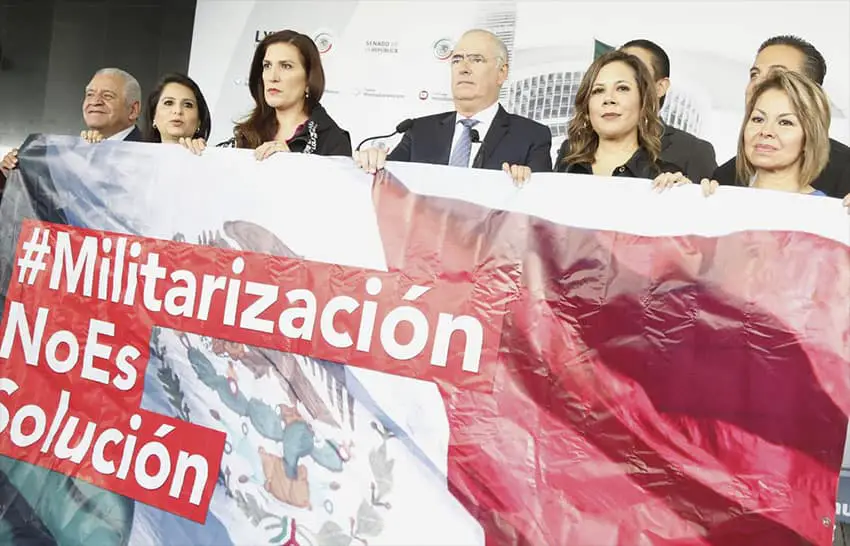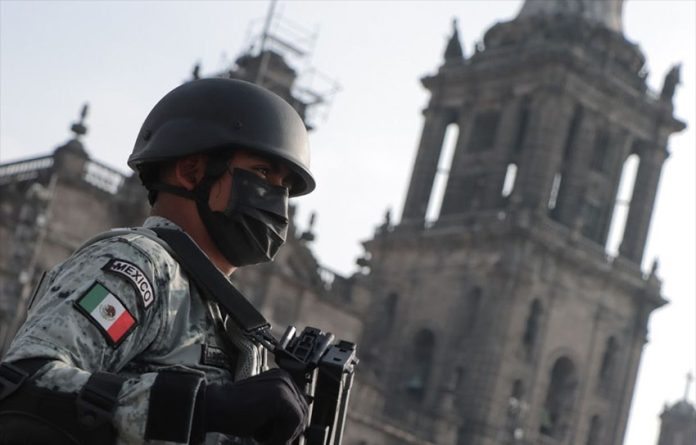The National Guard will be placed under the complete control of the army after the Senate passed a bill to that end early Friday.
Senators with the ruling Morena party and its allies voted in favor of the bill, ensuring its passage through the upper house.
President López Obrador, who announced the plan to put the National Guard under military control last month, will now sign the bill into law.
The National Guard is currently the responsibility of the Security Ministry, although it operates under army leadership on the ground.
The vote in the Senate was held in the early hours of Friday after a contentious debate that lasted almost 12 hours. A total of 71 senators voted in favor of the bill while 51 opposed it. Morena Senate leader Ricardo Monreal abstained due to concerns about the bill’s legality.
Opposition lawmakers indicated they would challenge the constitutionality of the soon-to-be law in the Supreme Court.
“Public safety is not achieved by violating the rule of law, by violating the constitution,” said Senator Claudia Anaya Mota of the Institutional Revolutionary Party (PRI).
The National Guard was established in 2019 under a constitutionally-enshrined civilian command but the bill that passed the Senate on Friday reforms secondary laws rather than the constitution.

National Action Party (PAN) Senator Lilly Téllez accused Morena senators of being subservient to López Obrador and his plan to further militarize the country.
“You are not legislators, you’re subjects of the pejelagarto [a kind of fish],” she said, referring to the president by one of his nicknames.
López Obrador, who has relied heavily on the military since taking office in late 2018, argues that the National Guard needs to be under the army’s control to prevent corruption and guarantee its professionalism.
Amnesty International (AI) said Friday that the move would lead to more human rights violations.
“We have already seen the disastrous results of the militarization of public security forces in Mexico over the last 16 years,” Edith Olivares Ferreto, director of AI in Mexico, said in a statement.
“We call on the executive branch to design a plan for the progressive withdrawal of the armed forces from the streets, prioritizing the strengthening of civilian police forces and the development of public prevention policies aimed at guaranteeing public safety.”
AI has detailed violations allegedly committed by the Mexican military, including extrajudicial killings, in human rights reports.
Acting UN High Commissioner for Human Rights Nada Al-Nashif also raised concerns about the bill approved by the Senate, saying that “the reforms effectively leave Mexico without a civilian police force at the federal level, and further consolidate the already prominent role of the armed forces in security in Mexico.”
López Obrador responded on Friday by questioning why human rights groups and international organizations didn’t speak out when abuses were committed during previous governments.
“[They] kept silent like accomplices during the whole period of massacres and torture, and protection of organized crime. They never said anything and now they are so worried about militarization in Mexico,” he said.
With reports from El Financiero, Reforma, El País and AP
